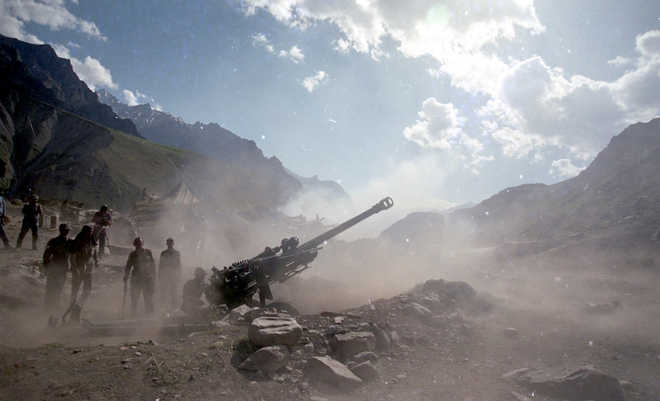
Wrong Move: Pakistan didn’t factor in the ferocious fight back by India
Sandeep Dikshit
The Kargil conflict was the Pakistan army’s fourth blunder in half a century. Thrice earlier, it transposed imaginary war games onto the battlefield against India. Each time, it wrested back the domestic narrative to project each clash as an honourable draw at best. The Kargil War was no different. Within months of being forced to withdraw, the army was in the driver’s seat in Islamabad. A clique of five generals in pivotal positions proved true to their salt by disposing of Nawaz Sharif.
Indian bibliography restricted its scope to the battle proper; the Americans, notably Bruce Riedel, provide a reliable account of the active US interlocution while Brig Shauqat Qadir noted the inner workings of the army. From Kargil to the Coup is a 16-year-old project, and it shows.
For the Indians, there is one binary about Kargil: A breach of faith by the Pakistan army. But the narrative is different in Pakistan: (i) The Instrument of Accession was temporary, pending a permanent solution through plebiscite, (ii) India had occupied many Kargil peaks during the 1965 and 1971 Wars and in the constant game of nibbling away at each other's posts, an operation to recapture Kargil peaks was considered kosher and, (iii) India's pre-emptive takeover of Siachen needed to be beaten back since the occupation violated Clause I (ii) of the Shimla Agreement.
In 1984, plans to occupy Kargil and starve the Indian Army of supplies up the field in Siachen were shot down as bird-brained. But the senior army brass was from the pre-1965 batch, wiser from disastrous unspooling of Operation Grand Slam. The younger lot, which included one Pervez Musharraf, thought the plan was implementable.
This was when India gifted strategic space to Pakistan by getting boxed in by its strategy of combining nuclear tests with threats to Pakistan. This led to a dialogue within 100 days of the nuclear tests.
And while PM Nawaz Sharif was parleying with the Indians, a clique of generals was moving Pakistan on a two-track contradictory policy on India. It was this dissonance that enabled India to come up trumps. A tinge of regret, most of it directed at India for ignoring this or that joint statement, laces the narrative. Unremarkably, the conclusion is self-serving: The US wanted Pakistan to unconditionally vacate Kargil, because it was more enamoured with India; the Vajpayee government duped Shairf by pretending to go for a negotiated solution while its military went all out; and, Sharif was weak-kneed before Clinton, although the Pakistan army was in a mood to continue battling it out.
And while the story swings between New Delhi, Washington and Islamabad with touchdowns in Riyadh and Beijing, the disjointed Pakistani effort disintegrated. As Zehra builds up the narrative, there are fascinating accounts of hard-nosed battles for peaks that rarely find mention, such as India's smaller version of the Kargil endgame of interdicting the Muzaffarabad-Khel road in PoK.
Pakistan army was on a roll while it planned and occupied the posts. But in the end, the operation met the same fate as India's forward policy against China in 1962. And once the Pakistan army was exposed, Nawaz Sharif became the fall guy even though he never went public with the army's parsimony with the truth. The generals of the Kargil clique were still in positions of influence and managed to unseat their prime minister while their chief was in the air.
This, perhaps, is the most exhaustive account of Pakistan’s legitimate grievances producing a disaster when they ran up against unconstitutional practices, institutional indiscipline, individualised maverick ways and a faulty linear outlook. At the planning stage of the operation, three ‘necks’ were offered if things went awry: General Musharraf, the 10 Corps chief and the Kargil commander. Yet the generals captured the narrative for the fourth time. The neck that got chopped was that of a civilian for a military misadventure he knew little about.



























